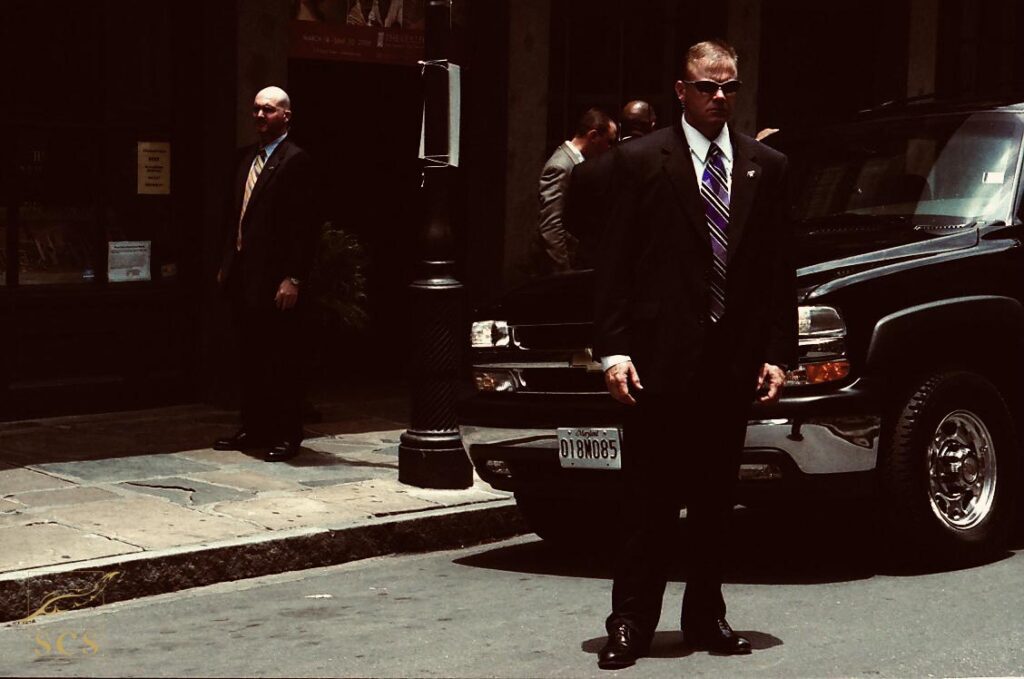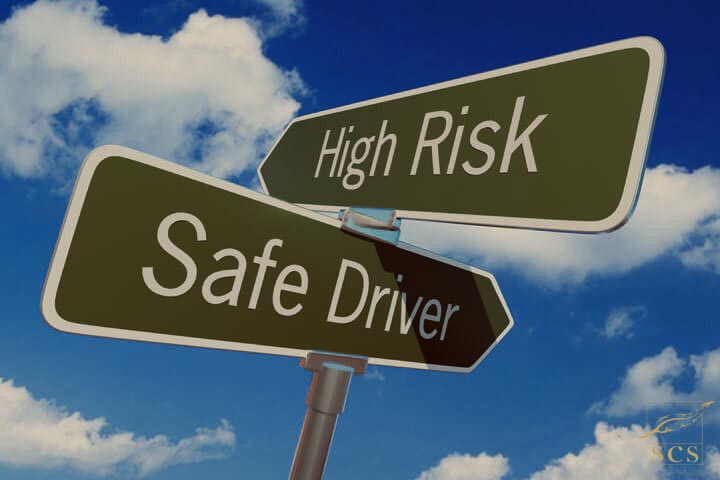Up to 80% of all attacks on principals happen in or around the vehicle, according to famed author Peter Consterdine. The issue often arises that the drivers are not professional driving operators but instead practiced chauffeurs. With no skills in security driving, they lack the expertise and skillset to confront the ever-changing threat landscape.
A job with countless more dangerous aspects than air travel, ground transportation presents a unique set of risks. From kidnap-for-ransom events to sudden attacks, security driving can help you make your trips considerably more pleasant and safe.
Moreover, motor vehicle accidents are reportedly the number one killer of healthy American citizens who live, work or travel overseas.
In plain terms, if the attackers fail in harming you, the inexperienced or untrained driver could present a grave danger. If necessary, will he or she know how to use high-performance vehicle manipulation or maneuvers?
A security driver is not only supposed to keep the vehicle between the ditches. They must be able to do so much more, like understanding how to perform high-speed and evasive driving techniques and be patient all the while.
Notwithstanding, let us look at the most crucial aspects that we suggest you start looking for in your next security driver.
Selecting a Proficient Security Driver
As with any employment process, choosing a security driver can generate countless headaches. However, companies like SCS can assess your needs and appoint appropriate staff, including a security driver.
As with many things in executive protection, there is no central governing authority that issues credentials to security drivers. You ― as the principal, on the other hand ― should not be too concerned about that. In fact, a security driver could be a military veteran with ten years of relevant driving experience.
Moreover, we could be talking about your everyday cab driver who decided to take a defensive driving program.
Besides the superb ability to employ a vehicle’s performance capabilities, a security driver must engage in pre-planning missions. These help them avoid risk. In addition, skillful security drivers can use additional threat monitoring tools for maintaining situational awareness, even while driving.
Pro-tip: Try to select a security driver who knows how to provide first-aid assistance and care for travelers with emergency symptoms. These may include breathing problems, bleeding that will not stop, chest pain, choking, fainting, etc. Actually, this is particularly relevant when there is only a security driver present and not a CPO.
Respectable protection companies understand that their principals want to spend their time as productively as possible. If you are traveling for business to a different city or a public event, you do not want to be the one who needs to take care of the security driving details.
If you feel you can work unobstructed while en route, your security driver is doing their job correctly.
An important observation to make is that, most of the time, there is no emergency. Hence, the security driver must also focus on driving comfortably, not just exploring the threat landscape.
In conclusion, to have an executive protection agent skilled as a security driver is unmistakably the most desirable option. Furthermore, we recommend it.

Questions and Inquiries on Security Driving
Hopefully, by now, you have seized our advice on selecting your security driver. However, we have only scratched the surface, and there is more to come. On that note, we suggest asking your future security driver the following questions prior to deployment/hiring:
- What kind of security-related driving courses did you complete?
- Are you ready to handle medical emergencies?
- What is your experience in managing operational risks and conducting emergency drills?
- Can you describe in detail all pre-mission preparations you will undertake before the travel?
These questions will assist you or your team in choosing the best fit for you. These inquiries should be straightforward and professional, just like in any serious interview.
Pro-tip: Ask for any certification they may have obtained in the course of their career. Look for the standards the instructors used in conducting the training. These may include the U.S. Secret Service and Department of State Worldwide Protective Service (WPS) standards.
More importantly, any trainings they may have attended should have focused on the following areas:
- Vehicle checks, equipment, and emergency preparedness,
- Car mechanics and the science of driving,
- Vehicle types,
- Sedan and SUV evasive maneuvers and concepts,
- Attack recognition and ambush avoidance,
- Braking techniques and skid control.
Trick Questions
Some trick questions can be more helpful than expected. For example, you can ask the candidate: How long can a vehicle be left unattended and not need to be inspected afterward? The answer to this question is, of course, not a single second. If your security driver ever needs to leave the vehicle unattended, they must implement a full search before using it anew.
Other intriguing questions you may want to ask your future security drivers include:
- What are you looking for when conducting a full search on a vehicle?
- Have you considered the fact that WiFi can be hacked in modern vehicles?
And the answers can sound something like this: brake cables cut, IEDs plus, sugar in the petrol tank, loose wheel nuts, damaged tires, bugging/tracking devices, secure WiFi networks tested in advance.
Additionally, you may inquire about the basic search equipment they would want to use during this process. The answers should be in line with:
- Torches,
- Mirrors,
- Pliers,
- Plastic strips,
- Vehicle tools,
- Screwdrivers, and
- Overalls.
It may sound overwhelming for any person to be questioned so rigorously. Nevertheless, we suggest running all these points by them since they will be in charge of protecting your very life.
In Conclusion
We hope that you are now better informed about the ins and outs of security driving. You may also be more aware that a regular chauffeur is not qualified to complete all the necessary tasks to ensure peace of mind.
Although you may feel considerably safer in your vehicle than outside, it is a flawed transportation means like any other. It can be your preferred method of transport, but you should know that most attacks against VIPs occur while sitting in their vehicles.
Yes, hiring proficient security drivers certainly helps, as they are well-versed in the art of maneuvering and emergency drills. While conducting pre-mission planning, a security driver can provide a detailed analysis of what may happen during the trip. You cannot expect any seasoned chauffeur to do this even with their best efforts and attention. Of course, provided they have not attended any driving courses.
All in all, even though it seems to be an unrelenting task, selecting your driver and other protection staff certainly pays off ultimately.


November 25, 2021 Author Advanced Security Training: A Precursor to Excellent Service
[…] driving. The EP detail should boast at least one security driver since not everybody can be well-versed in evasive […]
November 30, 2021 Author Secure Travel in Ethiopia: Your Simple Yet Effective Guide
[…] someone traveling from abroad to Ethiopia, endemic crime and frequent kidnappings are your primary concerns. However, one of the […]